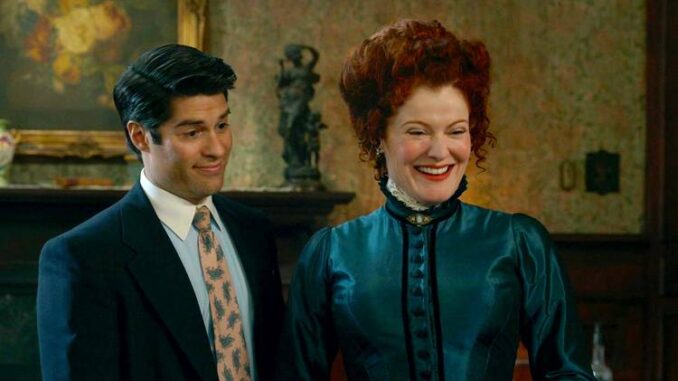
The human fascination with what lingers after the physical is gone is as ancient as the first campfire story. Whether it's the echo of a forgotten laugh, the weight of a secret, or the enduring legacy of a life well-lived, we are drawn to the unseen forces that shape our world. In the realm of television, two formidable "Hettys" — Rebecca Wisocky’s spirited specter in Ghosts and Linda Hunt’s enigmatic spymaster in NCIS: Los Angeles — provide a compelling, illustrative tapestry through which to explore this very fascination. Their distinct yet connected presences, examined through Rebecca Wisocky’s insights into the nature of the spectral, illuminate the profound and often haunting power of storytelling itself.
Rebecca Wisocky’s portrayal of Hetty Woodstone, the Gilded Age matriarch who haunts her ancestral home on CBS’s Ghosts, offers a literal and charming exploration of what it means for a story to persist beyond death. As Wisocky herself might attest when discussing her role, these ghosts aren't just jump scares; they are the living, breathing (or perhaps, non-breathing) embodiment of history. Each ghost on Ghosts is a walking, talking narrative, a collection of experiences, prejudices, and wisdom from a bygone era. Hetty Woodstone, with her corseted grandeur and Victorian sensibilities, represents an entire chapter of American history. Her lingering presence, her carefully chosen words, and her evolving understanding of the modern world are all facets of an ongoing story. Wisocky’s performance breathes life into the idea that even after the body gives out, the spirit—and more importantly, the story—can remain, constantly interacting with and shaping the present. Her Hetty is a testament to the idea that our past selves, our experiences, and our very essence are powerful narratives that can influence the living, demanding to be heard and understood.
Parallel to this spectral presence, yet operating in a starkly different plane, is the journey of Henrietta "Hetty" Lange from NCIS: Los Angeles. Portrayed with quiet intensity by Linda Hunt, Hetty Lange is not a ghost in the literal sense, but she is undoubtedly a figure whose journey is steeped in a ghostly aura—an ever-present, almost mythical force whose past continues to shape her present and the lives of those around her. Hetty's journey is one of immense mystery, deep loyalty, and profound sacrifice. Her cryptic pronouncements, her knowing gazes, and the vast, largely untold history of her globe-trotting espionage career paint a picture of a woman whose story precedes and transcends her physical form. She is a living legend, an archive of secrets, a quiet strategist whose influence ripples through decades. Like a ghost, her presence is felt even when she is not explicitly seen; her decisions, her past connections, and the legacy of her mentorship continuously "haunt" her team, guiding and protecting them. Her journey illustrates how a life deeply lived, fraught with difficult choices and unwavering dedication, can create a story so potent it becomes almost palpable, a silent but formidable presence that commands respect and shapes destinies.
The convergence of these two Hettys, one a literal specter and the other a living legend, powerfully illustrates the multifaceted nature of storytelling. Rebecca Wisocky’s understanding of her spectral Hetty as a character defined by her history underscores the fundamental human need to preserve and engage with narratives from the past. These stories are not merely historical records; they are active forces that challenge, entertain, and educate the present. Similarly, Hetty Lange's journey, though earthbound, functions as an intricate, ongoing narrative that teaches us about leadership, loyalty, and the enduring consequences of a life dedicated to unseen battles. Both Hettys, in their unique ways, embody the notion that our lives are a collection of stories, and these stories, once told or even merely hinted at, take on a life of their own.
Ultimately, the power of storytelling, as exemplified by these two captivating characters, lies in its ability to transcend the tangible. Whether it is a Gilded Age ghost reliving her past or a seasoned spy whose past defines her every move, the essence of their beings is wrapped in narrative. Wisocky’s perspective on the "people" behind the ghosts, coupled with Hetty Lange's journey as a testament to the enduring weight of a life's narrative, reminds us that stories are the unseen forces that connect generations, preserve wisdom, and grant immortality. They are the echoes that linger, the legacies that shape, and the invisible threads that weave the rich, complex tapestry of human experience, proving that some presences, and some stories, can never truly die.